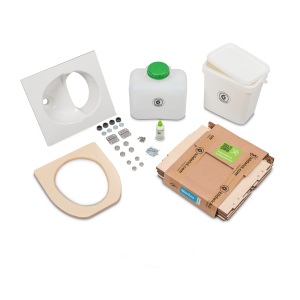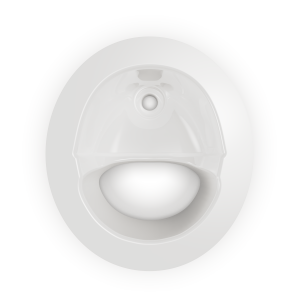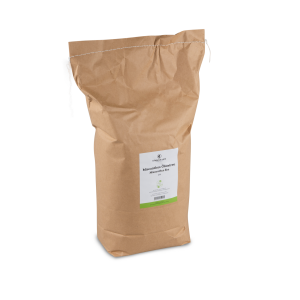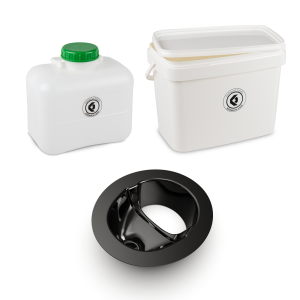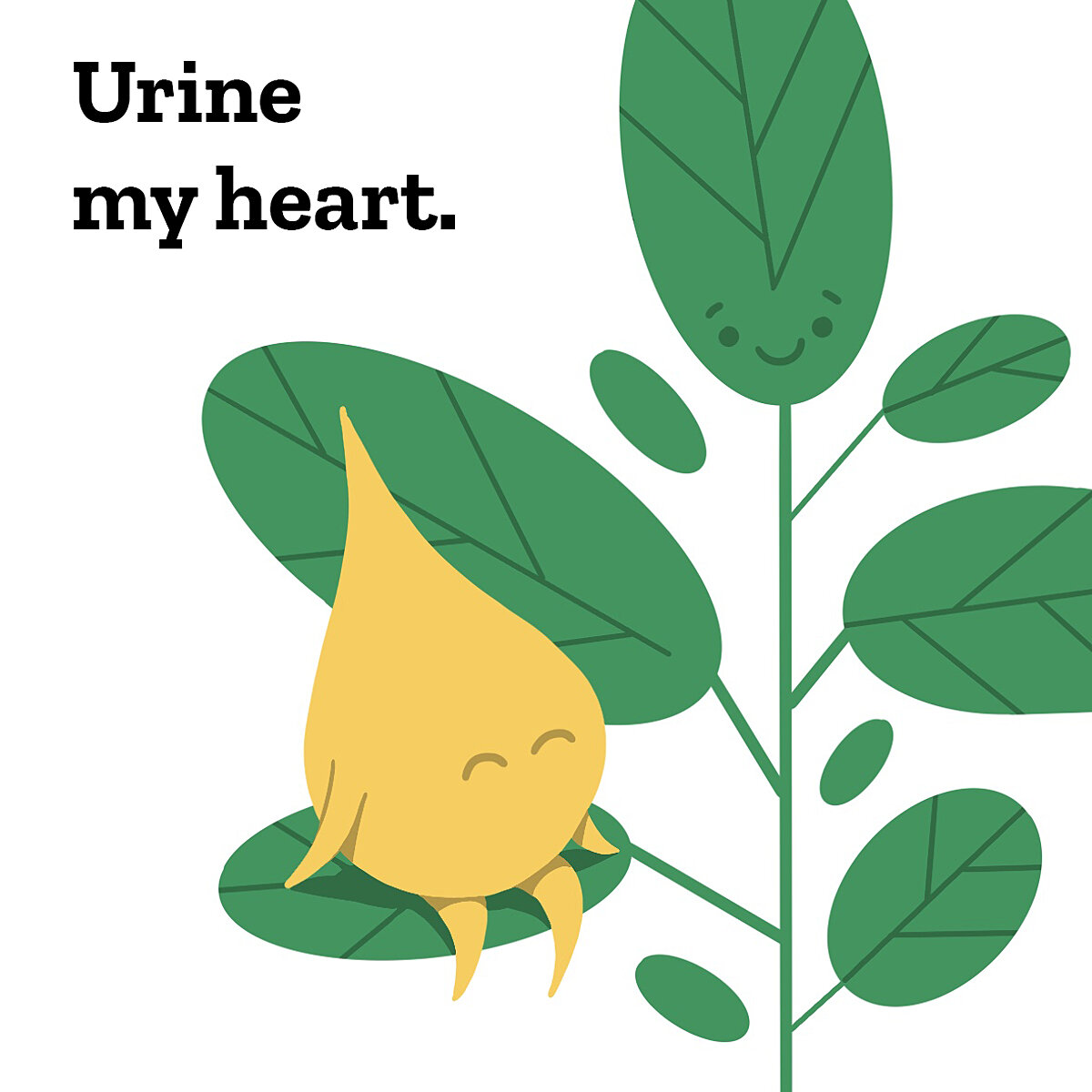We rely on it several times a day. Discreetly and reliably, it helps us keep our hygiene standards high. It would be hard to imagine life without it. It is time to thank it for its tireless service. On the occasion of World Toilet Day on 19 November, we say:
Thank you Toilet! You are just great!!
Because being able to use a toilet is far from being a matter of course worldwide. Many people have to do without the luxury of their own toilet. That's why we want to give toilets the attention they deserve. And at the same time, we want to take a look behind the scenes of how we use toilets, which we take so much for granted.
Urine - pee: an extraordinarily useful fluid
Throughout our lives, we produce quite a lot of urine. Of course, supplying the body with clean drinking water is the basic prerequisite for this, then the production of urine happens quite incidentally. A person produces between 0.8 and 1.5 litres a day.
"I'm just going to pee" or "I have to go to the toilet again" - most people are more likely to say these words than they are to talk about bowel movements, but they are still taboo subjects. Perhaps also because urine has a specific, unmistakable smell. Fresh urine smells slightly like broth, but after a while it takes on a rather intense ammonia odour as bacteria get to work.
Even if some people turn up their noses: it is the most natural and original liquid in the world. Even a foetus spends its first months of life in its own urine. It is indeed a misunderstood miracle product and can be used as a medicine, energy source, raw material and, of course, as fertiliser.
The miracle of urine production - a good flush please
Urine consists of 95% water. If we consume a liquid, it passes through the intestines into the blood. The kidneys filter our blood about three hundred times a day. In the process, substances that the body no longer needs accumulate in the renal pelvis. These are flushed out by excess fluid and end up in the balloon-like bladder. The urine now contains urea (about 20 grams per day), uric acid, proteins, sugars, hormones, vitamins, enzymes, fragrances and lots of other metabolic end products.
I see what you don't see: What your urine reveals about you
What exactly can be found in your urine depends, of course, on how you eat, how much you drink and whether you are healthy.
Using your urine, medical professionals can easily tell if your kidneys are fine, if you have an infection, if something is wrong with your sugar balance or if your liver is suffering. All it usually takes is a test strip that reacts to certain substances.
Uroscopy or urinalysis is one of the oldest medical examinations. In antiquity and the Middle Ages, it was even one of the most important diagnostic tools. It was mainly body fluids that provided information about diseases. Depending on colour, turbidity, smell and taste, a diagnosis could be made.
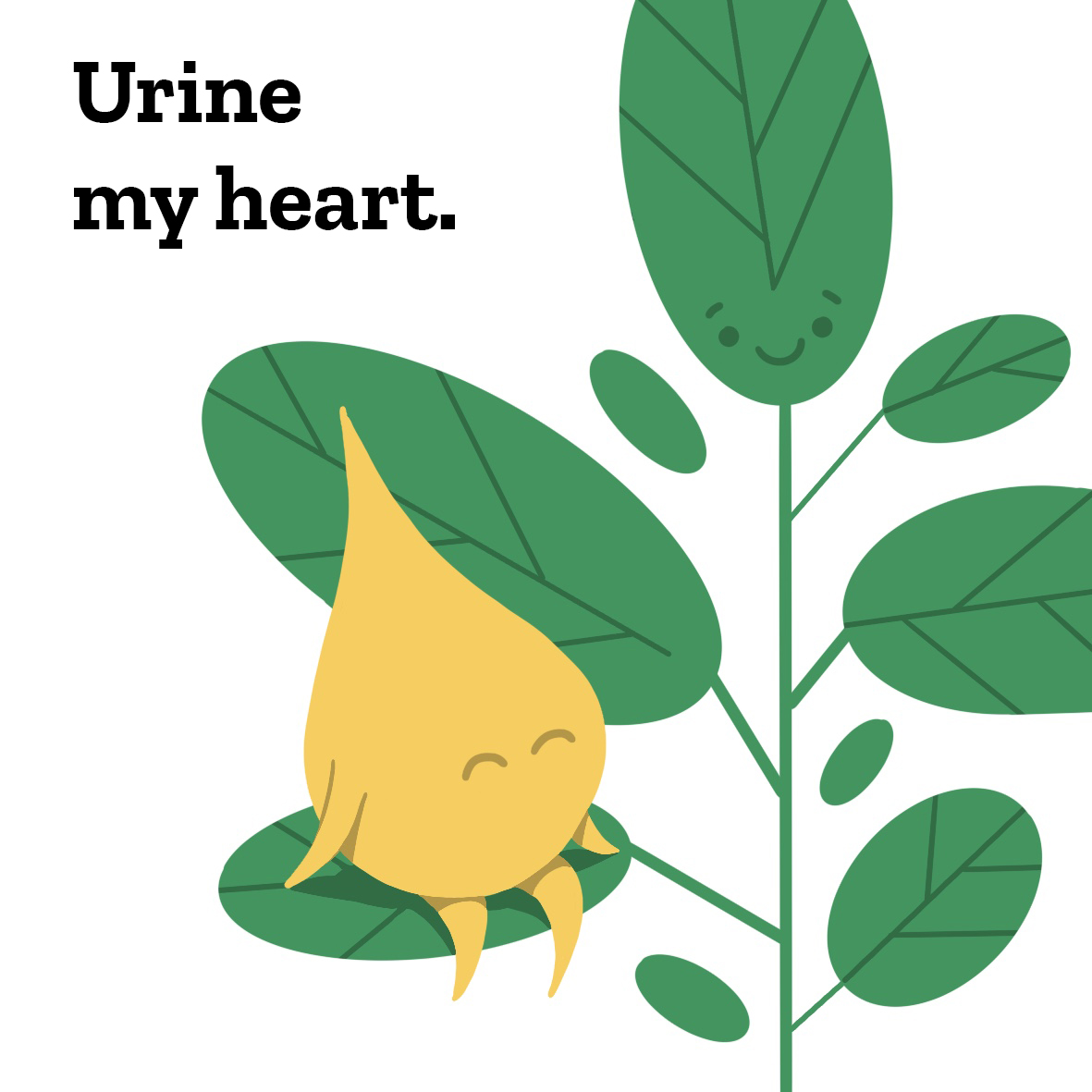
© Kildwick
Every drop is precious: urine as a remedy and aid
During the First World War, people even used their own urine to clean wounds. Especially in naturopathy, urine is still used today to treat diseases. It can be applied externally or internally and is said to help with skin inflammations and a poor immune system.
Today, people are rather sceptical about these treatments. Perhaps also because it now takes a lot of effort to face one's own urine. Yet urea is hidden in a multitude of products, for example in sleeping pills and cosmetics.
However, the greatest benefit from their own urine (and faeces) has certainly been derived from animals. Scent markings are used to identify paths, mark territories, send alarm signals, and the scent of excreta is also useful in sexual recruitment.
Now it's time to fertilise! - How we too can use urine properly
There are many reasons why we love segregating toilets. One of the most important is that they allow us to use our excreta as biological fertiliser, thus closing the natural cycle again.
Some gardeners may already be familiar with "gold water" because urine also contains potassium, magnesium, phosphorus and a lot of nitrogen. Exactly what plants need to grow. That can't be a coincidence, some of you might think! It's not, because nature intended it to be exactly that way. After all, fields have always been enriched with nutrients from animal excrement.
If you want to try it yourself, you should definitely dilute the urine. Depending on the type of plant, an 8- to 20-fold dilution is appropriate. The mixture is then simply applied to the soil. Leaves should rather not be wetted, as the nitrogen can lead to burns of the leaf skin due to solar radiation.
Especially potatoes, tomatoes, pumpkins and roses are happy about the powerful support. But hedges and lawns can also benefit from the mixture in autumn. Leftovers can be poured onto the compost with a clear conscience. The ingredients enrich it with nutrients and accelerate decomposition. For plants that store nitrates - e.g. lettuce and spinach - you should refrain from fertilising with urine.
In general, only urine that is free of drug residues should be used, as these can damage the soil.
Phosphorus: Everyone needs it, no one will have it soon. Except ourselves.
This may sound contradictory at first, but it is not:
Phosphorus is in almost every fertiliser. It is mined mainly in Morocco, China, Algeria, Syria and South Africa. It is used, for example, for the generous fertilisation of grain fields in order to generate more and more fodder for livestock, faster and faster.
But there is a problem: the world's phosphorus reserves are expected to be exhausted in 75 to 200 years.
So it stands to reason that we should try to recycle the phosphorus from our urine. On a small scale, this can be done with a dry separation toilet by using the collected urine as fertiliser for your own vegetable garden.
The beginning of a small pee revolution.
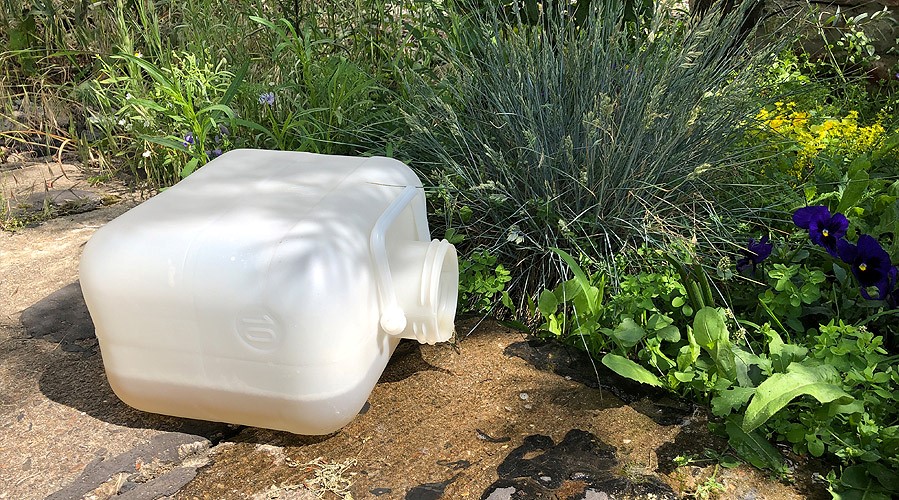
© Kildwick/Florian Manhardt
Save the pee!
With your own composting toilet you can start today. Let's close natural nutrient cycles together. For a sustainable future in which we don't waste our resources, but use them.
